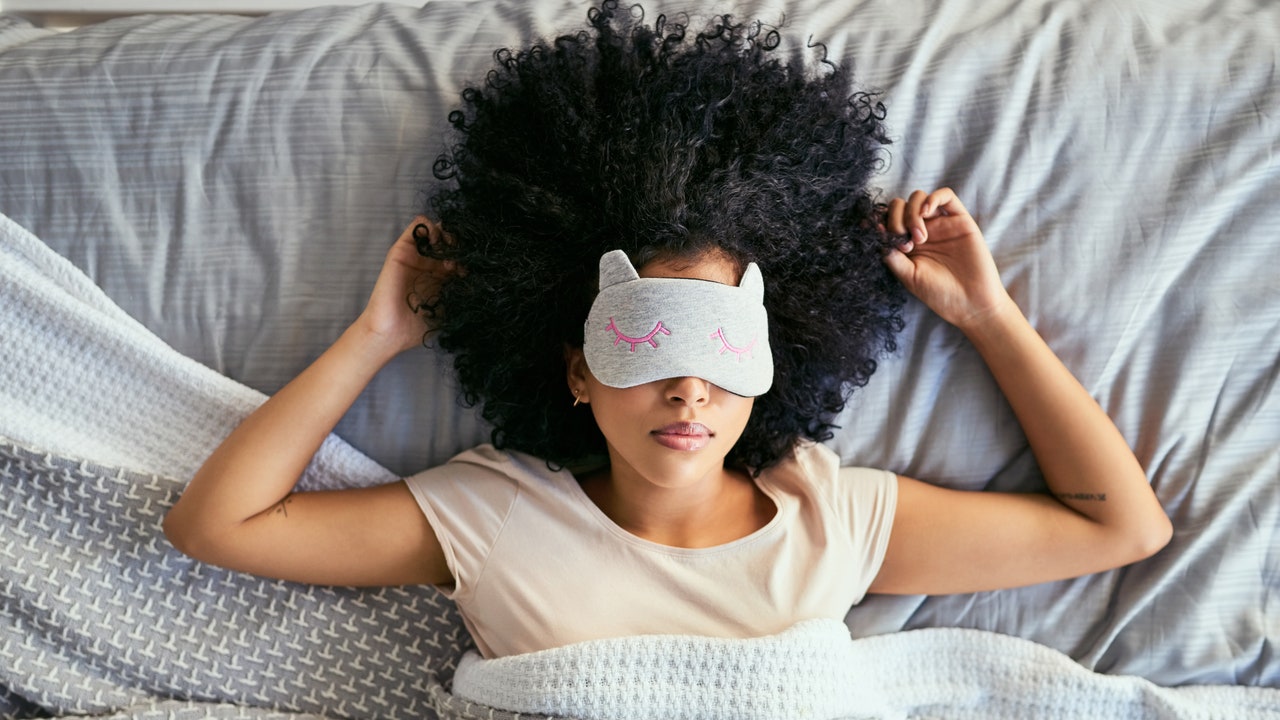5 Common Mistakes You Make That Could Be Impacting Your Sleep

[ad_1]
If the statistics are anything to go by, good-quality sleep is less easy to come by nowadays. A recent study by King’s College London, which analyzed the sleep of U.K. residents during lockdown, found that nearly two-thirds (63%) suffered a negative impact on slumber during this time. We all know how important sleep is for our health, but are we aware of the mistakes we often make during the day and pre-bedtime that affect it? Here, the experts break it down.
Drinking alcohol (and caffeine)
Even just a glass of wine can impact the quality of your sleep. “Alcohol is a sedative, so while you might lose consciousness quicker upon getting into bed, you’re not actually falling asleep quicker,” says Maja Schaedel, clinical psychologist and cofounder of The Good Sleep Clinic. “Your sleep will be more fragmented and you’ll wake up in the night without realizing it.” An evening tipple also blocks REM sleep, which helps with emotional processing: “That’s why you can feel a bit emotionally fragile when suffering a hangover,” Schaedel says. If you do want a glass of wine (or more), drink earlier in the evening rather than later—it will help the body to process it.
Meanwhile, caffeine takes between five and seven hours to vacate the body: “If you have a coffee past 4 or 5pm, chances are you’ll have difficulty sleeping or at least have a higher chance of suffering a restless night,” explains wellness expert Marie Reynolds. “Caffeine is a psychoactive stimulant that directly impacts our adenosine (a chemical that builds up during the day, resulting in the urge to sleep) and mutes other chemicals responsible that trigger sleep.” Avoid all coffee, teas, and energy drinks—anything with caffeine in it—after midday to be in with the best chance of a peaceful night.
Eating before bed
“Eating a high carbohydrate meal before you go to bed has a similar impact on the body to alcohol,” explains Schaedel. “It makes you feel sedated and sleepier, but your sleep will be fragmented. Plus, what usually happens is that the energy gained from the meal wears off during the night, and then you wake up.” At that point you might feel hungry, hence the common trope of the midnight snack.
Consuming food before bedtime means the body has to metabolize it and gets hotter in the process, making it more difficult to sleep (our body temperature naturally drops before bed to induce a feeling of sleepiness). The trick is to enjoy healthy complex carbohydrates like whole wheat, beans and greens, and to eat at least a few hours before you go to sleep. “One of the problems I’m seeing a lot during lockdown is that clients eat their dinner earlier, then get peckish later on,” she says, advising against this for good sleep.
Falling asleep on the sofa
Yes, it is comfy, and yes, you might be tired after a long week, but Schaedel warns against falling asleep on the sofa if you want to sleep well when you go to bed. A common problem among her clients is that having a nap (wherever it may be) reduces “sleep pressure” (or the mounting movement throughout the day towards sleep), which means that when they go up to bed, they’re wired or can’t sleep. Avoid it at all costs if you have trouble sleeping—if you’re one of the lucky ones that don’t, nap away.
Looking at the news
We know that screens disrupt our circadian rhythms (and ability to sleep), but there is another reason why time spent interacting on our phones keeps us awake: It’s overstimulating. “It’s a lot to do with the fact that we are interested in whatever we’re looking at, whether it’s Instagram or a news website,” says Schaedel. “You’re looking at it because you want to engage, but that bright light and stimulating content ultimately masks your natural sleep.” Even when you turn off, your brain continues to buzz. Distance yourself from your phone or anything overexciting for at least an hour before bed to give the brain a chance to relax.
Allowing “electro-smog” in the bedroom
From our screens to the plugs in our bedrooms, we are surrounded by “electro-smog,” as Reynolds calls it. As well as avoiding electronics as per the above tip, she also advises creating a space that helps keep your sleep zone as clear and pollutant-free as possible. “Keep a peace lily in your bedroom. It will help purify the air around you, eliminating 60% of the pollutants in the air,” she advises. “It also naturally aids a restful night’s sleep.”
This article was originally published by British Vogue.
[ad_2]
Source link




